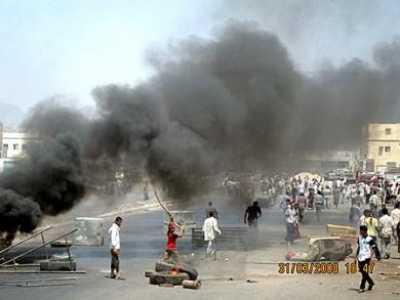In what has been three decades of ill-advised wars in the Middle East, Saudi Arabia’s war in Yemen may be the most ill-advised of them all. “Operation Decisive Storm,” the ironic name for Saudi Arabia’s aerial campaign in Yemen, has led to nothing decisive in Yemen beyond ensuring that the country remains a failed state and fertile ground for organizations like al-Qaeda in the Arabian Peninsula (AQAP). Long before the commencement of “Operation Decisive Storm,” Yemen, the poorest country in the Middle East, was grappling with a host of problems ranging from severe water shortages, food insecurity, and a moribund economy, to a long running multi-front insurgency. Saudi Arabia’s war in Yemen has exacerbated all of these problems and could well be the coup de grace for a unified and relatively stable Yemen.
On Tuesday April 21st, the government of Saudi Arabia abruptly announced that it was ending “Operation Decisive Storm” and that it would be scaling back its aerial campaign in Yemen. “Operation Decisive Storm” will be replaced with “Operation Restore Hope,” an unfortunate name for a military operation given that it was also the name for the US’ ill-fated 1992-3 intervention in Somalia. It is unclear what “Operation Restore Hope” aims to achieve; however, the first phase of Saudi Arabia’s war in Yemen has been disastrous.
According to the World Health Organization, more than 900 people have died in Yemen since the Saudi led aerial campaign against Yemen began on March 25th. In addition, one hundred and fifty thousand Yemenis have been displaced and the number of food insecure people has increased to more than twelve million. Due to the ongoing blockade of its ports—Yemen imports more than 90% of its food—prices for basic food items have soared and there are widespread shortages. In Aden, where temperatures routinely climb into the triple digits, most of the city of more than five hundred thousand has no access to water. Across the country, supplies of gasoline and gas have been exhausted. Hospitals, which were already struggling to cope with a lack of medicine and supplies, now have little or no fuel left to run their generators. Those patients in Yemen’s Intensive Care Units will likely die as their life saving machines are idled due to a lack of electricity.

